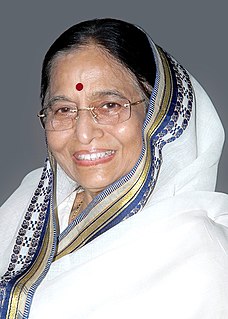A Quote by Pratibha Patil
Our goal of poverty eradication and of inclusive growth that embraces the disadvantaged and marginalized sections of society can be achieved when our actions are guided by a social conscience and are not devoid of sensitivity.
Related Quotes
It is a fact that, in the West, we live in a capitalist society, but that does not mean that we cannot be guided by the idea of a social conscience in our work. Yes, fashion design requires consumers to consume, but we can do our bit for society by running our companies in a socially responsible way, and by creating products that promote respect for social and environmental issues. There is also the possibility for power and influence to be a force for change.
Ultimately a highly complex sentiment, having its first origin in the social instincts, largely guided by the approbation of our fellow-men, ruled by reason, self-interest, and in later times by deep religious feelings, confirmed by instruction and habit, all combined, constitute our moral sense or conscience.

































